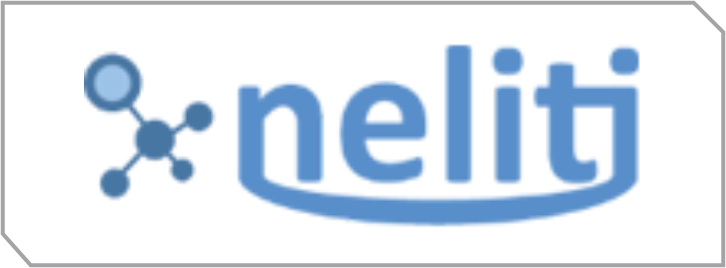The Urgency of Establishing a Legal Regime for the Right of Publicity in Indonesia: A Study of Legal Politics and International Comparison
DOI:
https://doi.org/10.53748/jbms.v5i3.125Keywords:
right of publicity, legal politics, identity protection, law and technology, digital economy, comparative lawAbstract
This study investigates the urgency of establishing a dedicated legal regime for the Right of Publicity in Indonesia. It explores how the country’s fragmented regulatory landscape fails to adequately protect personal identity attributes such as name, image, and voice, especially in the face of AI, deepfakes, and the global digital economy. The primary research question is: How should Indonesia respond to the digital commercialization of identity through legal reform? This research employs a normative legal method supported by a legal-political framework, human rights theory, law and economics, and comparative legal analysis. It examines Indonesian laws, international instruments, and comparative frameworks from the United States and the European Union. The study finds that Indonesia lacks a coherent legal regime to protect the commercial use of personal identity. The existing protections across the Copyright Law, the Electronic Information and Transactions Law, and the Personal Data Protection Law are fragmented and insufficient. Comparative analysis reveals that while the U.S. treats the Right of Publicity as an economic right, the EU embeds it in personality and data protection laws. The paper advocates for regulatory reform to fill the legal vacuum. This paper provides a novel interdisciplinary approach by integrating legal politics and comparative law with human rights and economic theories. It uniquely proposes a hybrid model for Indonesia’s legal reform—drawing from both the U.S. and EU—while recommending a dedicated statute or integration into IP or PDP laws, supported by ethical guidelines, digital literacy campaigns, and a semi-independent regulatory body.
Downloads
References
Direktorat Jenderal Kekayaan Intelektual (2023). Kajian komersialisasi kekayaan intelektual. Laporan DJKI Kemenkumham, 2023(1).
Greenberg, A. (2022, October). The Bruce Willis deepfake is everyone’s problem. WIRED. https://www.wired.com/story/bruce-willis-deepfake-rights-law/
Habermas, J. (1998). The inclusion of the other: Studies in political theory. MIT Press.
Indonesia (2008). Undang-Undang tentang Informasi dan Transaksi Elektronik, UU No. 11 Tahun 2008, LN Tahun 2008 No. 58, TLN No. 4843.
Indonesia (2014). Undang-Undang tentang Hak Cipta, UU No. 28 Tahun 2014, LN Tahun 2014 No. 266, TLN No. 5599.
Indonesia (2022). Undang-Undang tentang Perlindungan Data Pribadi, UU No. 27 Tahun 2022, LN Tahun 2022 No. 213, TLN No. 6843.
International Trademark Association (INTA) (2023). Right of publicity: Guidelines for commercial use. INTA Journal, 2023(1).
Mahfud, M. D. (2009). Politik hukum di Indonesia. Rajawali Pers.
Michalkiewicz-Kadziela, K., & Milczarek, M. (2022). Legal Boundaries of Digital Identity Creation: A Pan-European Legal Mapping of Digital Identity Regulation.
Internet Policy Review 11(1), 1–19. https://policyreview.info/pdf/policyreview-2022-1-1614.pdf
Marzuki, P. M. (2010). Penelitian hukum. Kencana.
McCarthy, J. T. (2024). The rights of publicity and privacy (2nd ed.). Clark Boardman Callaghan.
Posner, R. A. (2014). Economic analysis of law (9th ed.). Aspen Publishers.
Pound, R. (1922). An introduction to the philosophy of law. Yale University Press.
Rahardjo, S. (2000). Ilmu hukum. Citra Aditya Bakti.
Rahardjo, S. (2009). Hukum progresif: Hukum yang membebaskan rakyat. Kompas.
Ramli, A. M. (2021). Hak cipta, disrupsi digital, ekonomi kreatif. Keni Media.
Rothman, J. E. (2018). The right of publicity: Privacy reimagined for a public world. Harvard University Press.
Splagounias, T. (2024). Rethinking the Right of Publicity in the Era of Generative AI.
IDEA – The Law Review of the Franklin Pierce Center for Intellectual Property 65(1), 1–45.
https://law.unh.edu/sites/default/files/media/2024-12/nhidea_65n1_thomas-splagounias.pdf
United Nations (1948). Universal Declaration of Human Rights.
United Nations (1966). International Covenant on Civil and Political Rights.
Zacchini v. Scripps-Howard Broadcasting Co., 433 U.S. 562 (1977).
Downloads
Published
How to Cite
Issue
Section
License
Copyright (c) 2025 Journal of Business, Management, and Social Studies

This work is licensed under a Creative Commons Attribution 4.0 International License.
Authors retain copyright and grant the journal right of first publication with the work simultaneously licensed under a Creative Commons Attribution 4.0 (CC 4.0) that allows others to share the work with an acknowledgment of the work's authorship and initial publication in this journal.


















